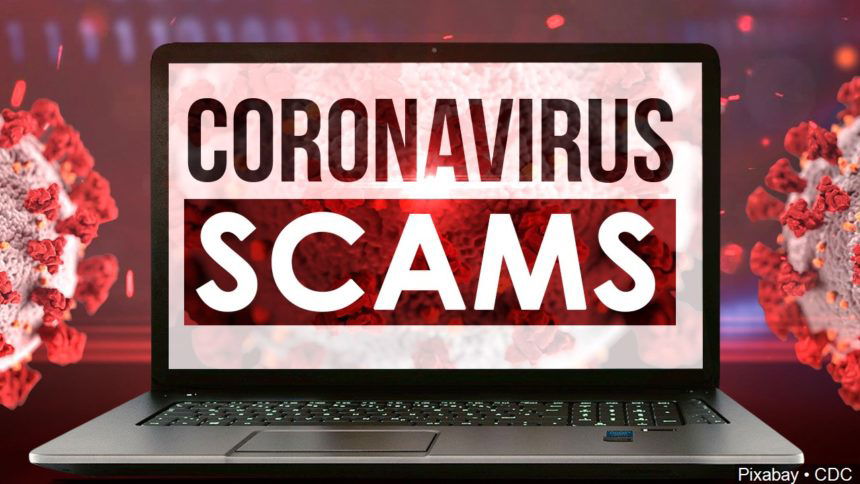Task force to combat COVID-19 fraud

PHOENIX (KYMA, KECY)-State and federal prosecutors team up and form a new task aimed to combat coronavirus-related fraud.
The Attorney General's Office says the mission of the Task Force is to investigate and prosecute wrongdoers that seek to profit from the public health crisis pertaining to COVID-19 in Arizona.
By working together across all levels of government, the Task Force will ensure that cases are investigated promptly and brought to the appropriate prosecuting entity. In the midst of the current crisis, members of the Task Force will work together to better protect Arizona and make sure all scams are investigated.
"It’s not surprising con artists are taking advantage of headlines and exploiting COVID-19 concerns and anxieties of consumers," said Attorney General Mark Brnovich. "The Attorney General’s Office is here to serve Arizonans and is working around the clock to combat fraud, but we can't do it alone. The launch of this new COVID-19 Task Force with our federal and local partners will maximize our resources and help ensure we are prepared to combat new and evolving consumer threats."
Attorney General's Office
In recent weeks, stories of fraud related to the coronavirus have increased in the nation. Fake texts, emails, and social media posts that might normally be ignored may now be enticing if they offer COVID-19 tests, miracle cures, medical products, or a financial windfall.
In light of these reports, Attorney General Brnovich and United States Attorney Bailey offer the following consumer tips to protect against COVID-19 fraud:
- Do not respond to texts, emails, or calls requesting your personal information in exchange for a COVID-19 stimulus check. If you receive one of these requests, immediately report it to the hotline. COVID-19 economic impact checks will be delivered based on 2018 or 2019 tax return information, so no action is required for most people.
- Ignore offers for a COVID-19 vaccine, cure, or treatment. Remember, if there is a medical breakthrough, you won’t hear about it for the first time through an email, online ad, or unsolicited sales pitch.
- Research any charities or crowdfunding sites soliciting donations in connection with COVID-19 before giving. An organization may not be legitimate even if it uses words like “CDC” or “government” in its name.
- Be cautious of purchasing personal protective equipment (PPE) from unknown third party vendors. Verify that the company is legitimate before ordering their products or sending money.
- Never click on a link or open an email attachment from an unknown or unverified source. Links and attachments may be embedded with a virus that will infect your computer or mobile device. To better protect yourself against malware, make sure your anti-virus software is operating and up-to-date.
- Do not be convinced by sales pitches for COVID-19 tests that promise to give results in as little as 24 hours. If an effective, quick-results test becomes widely available, you will find out through news sources and government reporting, not a sales pitch.
If you believe you have been a target of a coronavirus-related scam, or know someone else who has been, please report the fraud. Reports can be made to the Task Force at:
- National Center for Disaster Fraud Hotline: 1-800-720-5721 or disaster@leo.gov
- Arizona Attorney General’s Office: www.AZAG.gov/complaints/consumer
- FBI’s IC3 (for internet related scams): www.IC3.gov

